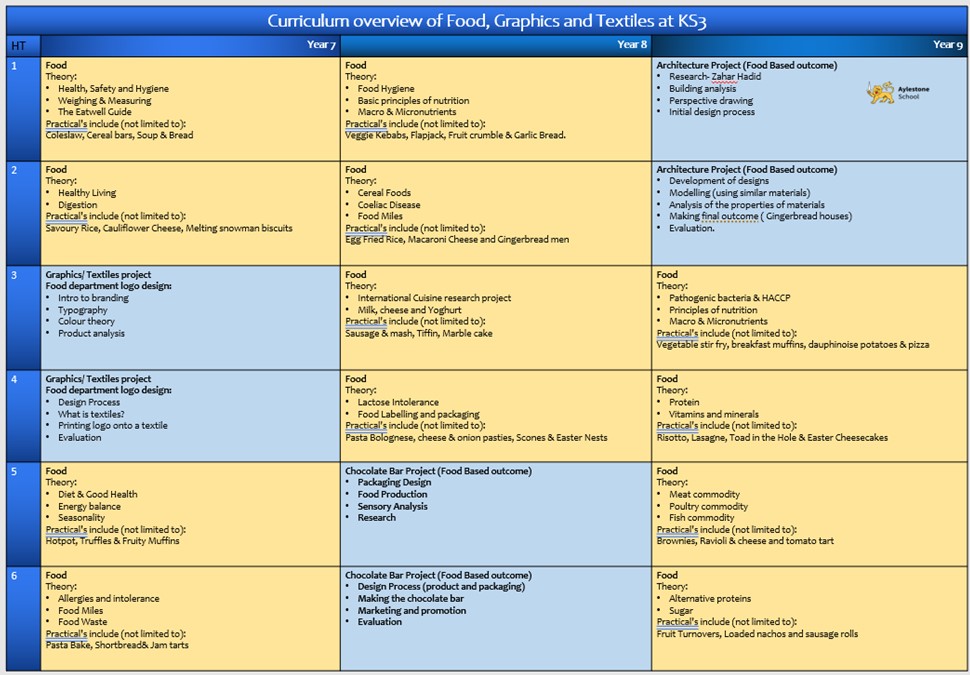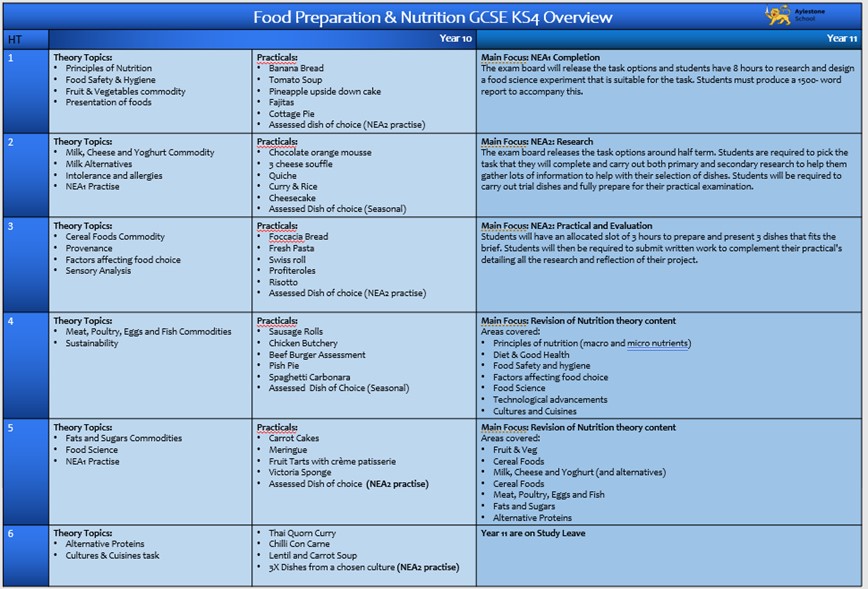Food Technology
Food Preparation & Nutrition Vision Statement:
Every student is supported to develop their practical food preparation skills. All students are encouraged to explore their creativity and challenge their abilities. Food achievement is celebrated in the school and extra-curricular opportunities are enjoyed. Every student is supported to develop their knowledge and understanding of basic principles of nutrition to lead a happy and healthy lifestyle for their time at school and beyond.
Food Preparation & Nutrition Aims:
1.All students are able to access a diverse curriculum that considers the principles of healthy eating and living.
2.Students learn and develop theoretical understanding of nutrition and healthy eating. Healthy living and health, hygiene and safety is the golden thread throughout all lessons.
3.Students develop their self-awareness and confidence through the mastery of challenging subject-based skills such as: knife skills, using the oven and hob safely, using equipment, judging and manipulating sensory elements of food, presenting food to a high quality, amongst many more.
4.Students are challenged and supported to achieve through structured, scaffolded tasks and a developmental assessment framework.
5.Students develop their competencies of inquiry, analysis and critical thinking through written, visual and oral communication using food specific vocabulary.
6.Students develop an understanding of British values especially focusing on mutual respect and tolerance for others valuing different cultures and cuisines and celebrating diversity of food.
7.Students develop an appreciation of Food and its integral contributions within world culture, The transferable skills developed within the subject and specific career opportunities.
All students at Key Stage 3 will have two lessons of food a fortnight throughout the academic year. We understand that learning how to cook is a crucial life skill that enables students to feed themselves and others well, both now and in later life which underpins our strategy and ethos. Food is a hugely popular subject and it paves the way for students to demonstrate both flair and creativity in their work.
Year 7, 8 and 9 students follow a course based around the National Curriculum which encourages them to understand and apply the fundamental principles of nutrition and healthy eating. The students are required to cook a wide range of sweet and savoury dishes with the level of challenge and skill increasing each academic year.
During the year, students will also complete one full term of an elongated project that incorporates graphics and textiles to demonstrate a cross-curricular approach and ensure that students are accessing all technology subjects detailed in the national curriculum.

Food Preparation & Nutrition GCSE
Exam board: Eduqas
How will I be assessed?
50% of the qualification is awarded through coursework which is made up of the below assignments:
NEA1: Food investigation ( food science experiment)
NEA 2: Food Preparation assessment (three dishes which meets set brief)
50% of the qualification is awarded through a written exam that assesses knowledge and understanding of the key principles of nutrition theory.
How will I learn?
Students cook each week at GCSE level and work their way through a recipe booklet, reflecting on the sensory elements, skills and food science that underpins each practical. Students will also have theory-based lessons where the students will learn and understand how and why we fuel our bodies alongside provenance and food science amongst many other topics.
What can I progress to?
You could:

For further information:
Mr Stevenson
Email: MStevenson@aylestone.hereford.sch.uk
